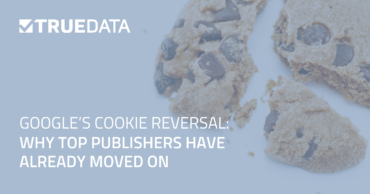Google announced on April 22nd that they won’t be deprecating third-party cookies after all. After years of delays, promises, and back-and-forth, what gives?
Google already had to do a bit of backtracking last summer when advertisers, publishers and other industry players expressed criticism about the functionality and accelerated implementation of the Sandbox solution. If third-party cookies were phased out too quickly, the ad revenue for many major players would have taken a hit. By reversing course, Google sidesteps potential backlash from advertisers and publishers worried about the impact on targeting and revenue.
But that’s not the full story. It’s no coincidence that the decision to keep cookies comes immediately on the heels of Google’s second major antitrust lawsuit where the Department of Justice has just ruled Google illegally monopolized ad tech through their control of the tools used for online advertising. Unfortunately for Google, it seems the rising pressure from industry players as well as regulators has become too much to ignore. Being seen as the least privacy-conscious web browser is bad for business, but turns out being perceived as a monopolistic giant is even worse.
Luckily, while Google’s been going back and forth, the rest of the industry has been striding forward. Alternative solutions continue to be developed at a rapid pace, and third-party cookies are no longer foundational for success in advertising. In case you need some more evidence, check out our e-book on why cookie reliance means only reaching a fragment of your audience.
Success now hinges on a broader, more diverse set of solutions that go far beyond cookies. For publishers, this is a critical moment to seize more control over their data and audience strategies. With Google’s flip, publishers now have a unique opportunity to expand their identity solutions beyond the default offerings in Google Ad Manager. As reliance on cookies continues to wane, publishers should invest in building out robust, first-party identity graphs and deterministic data solutions to power more personalized and privacy-compliant ad experiences. By incorporating identity resolution, contextual signals, and strategic partnerships, publishers can enhance monetization and beat out competition.
Advertisers and publishers are future-proofing their tech stacks with a portfolio based approach to identity. By combining contextual signals, first party data, deterministic identity resolution and enrichment, as well as probabilistic expansion and strategic data partnerships, scalable addressability is ensured. In this industry, change is the only constant. Privacy standards will continue to evolve, and only those who invest in innovation and embrace a flexible, identifier-agnostic approach will thrive.


Subscribe For Updates